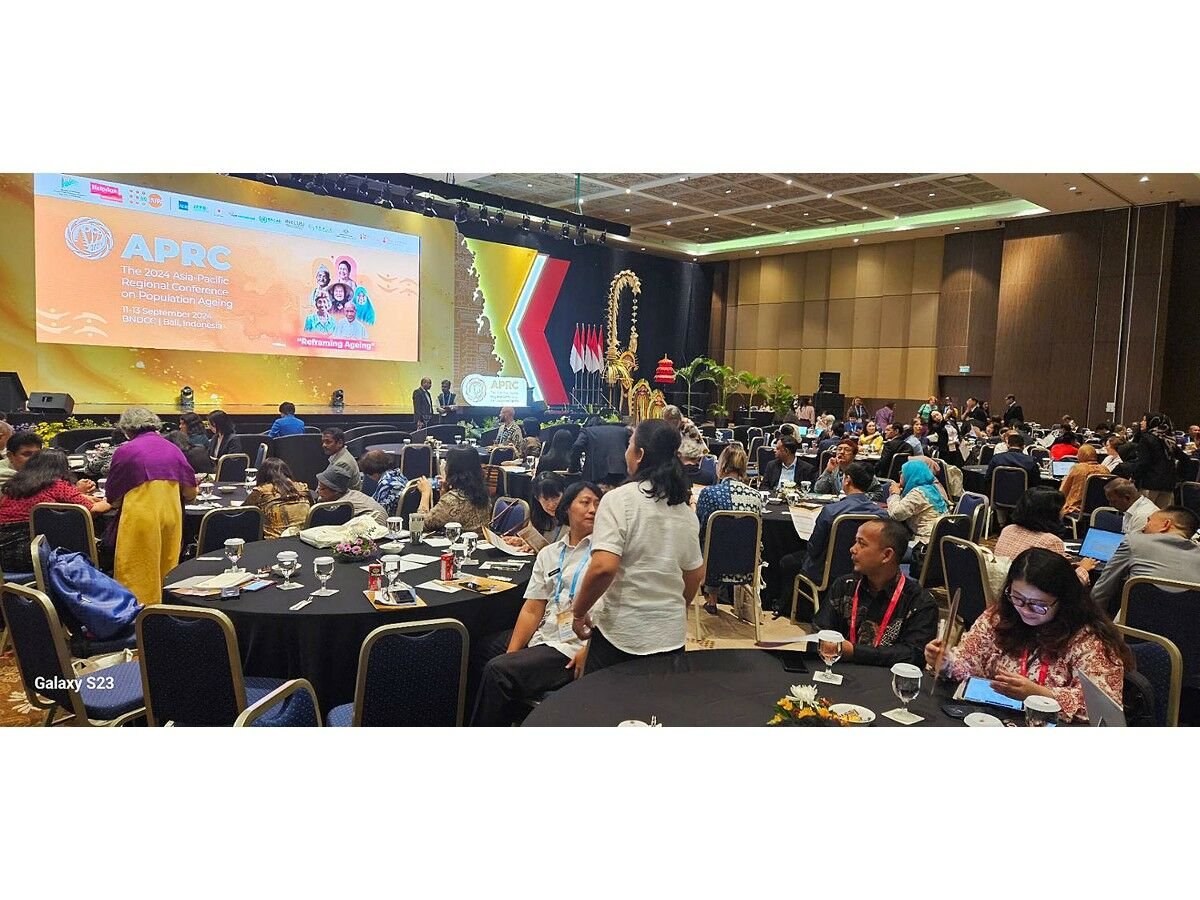Asia-Pacific to tackle Thailand’s ageing population crisis

Governments across the Asia-Pacific region are being urged to formulate strategies to address their ageing populations, with older people expected to make up nearly 20% of the region’s population by 2050.
Around 500 delegates from 38 countries have gathered on the Indonesian island of Bali for the 2024 Asia-Pacific Regional Conference (APRC) on Population Ageing. These delegates include experts, policymakers, UN representatives, international agencies, and civil society leaders from the Asia-Pacific.
The three-day conference, concluding today, September 13, is themed Reframing Ageing. It is co-hosted by Indonesia’s Ministry of National Development Planning, HelpAge International, and the United Nations Population Fund (UNFPA).
The APRC aims to establish a knowledge base on elderly care and create a network to share good practices and expertise in the Asia-Pacific, promoting the development of elderly care systems and services.
Pio Smith, the Asia-Pacific Regional Director for UNFPA, highlighted the urgency of addressing the region’s rapidly ageing population.
“None is left behind. This conference is relevant for the Asia-Pacific because if we don’t have these conversations, we don’t have any kind of advocacy that is required by the world.
“The Asia-Pacific is the most rapidly ageing region across the globe and that means that we need to have policies, plans, and strategies to help address the ageing population.
“We shouldn’t wait until 2045 or 2050 because we know that there is a demographic dividend to reap now.”
Smith advocated for immediate investments in projects to improve the quality of life of the elderly.
Global ageing crisis
A report from the Asian Development Bank (ADB) underscores the significance of this demographic trend. The Asia-Pacific is at the forefront of global ageing, with people living longer and birth rates declining.
By 2050, one in four people in the Asia-Pacific will be over 60 years old. The population of older people in the region is expected to triple between 2010 and 2050, reaching nearly 1.3 billion.
Countries like China, Sri Lanka, Thailand, and Vietnam will experience this transition rapidly, while others, such as Indonesia, will see large elderly populations.
This demographic shift will have broad social and economic impacts, influencing everything from urban planning to fiscal policies. Recognising and maximising the contributions of older people will be essential for sustainable development.
Somchai Jitsuchon, a research director for inclusive development at the Thailand Development Research Institute, expressed concerns about the financial security of elderly Thais during the APRC.
“Everybody should take care of themselves well to prevent themselves from getting non-communicable diseases, such as heart disease and diabetes, from an early age because treating those diseases is expensive.”
Somchai also emphasised that as life expectancy increases, older adults are living healthier lives and possess more education and skills than before. However, the importance of saving from an early age cannot be overstated.
“The money will help them in the future, especially when they are older.”
The research director urged the government to promote saving and develop innovations to enhance the quality of life for the elderly, reported Bangkok Post.
Cherian Mathews, Chief Executive Officer of HelpAge International, highlighted the role of civil society in caring for the elderly, shaping policies, promoting well-being, and reducing poverty and discrimination.
“Civil society can help take care of the elderly, shaping policies and programmes that affect the elderly, helping promote the well-being and inclusion of older women and men, and reducing poverty and discrimination in their lives.”
Latest Thailand News
Follow The Thaiger on Google News:


























